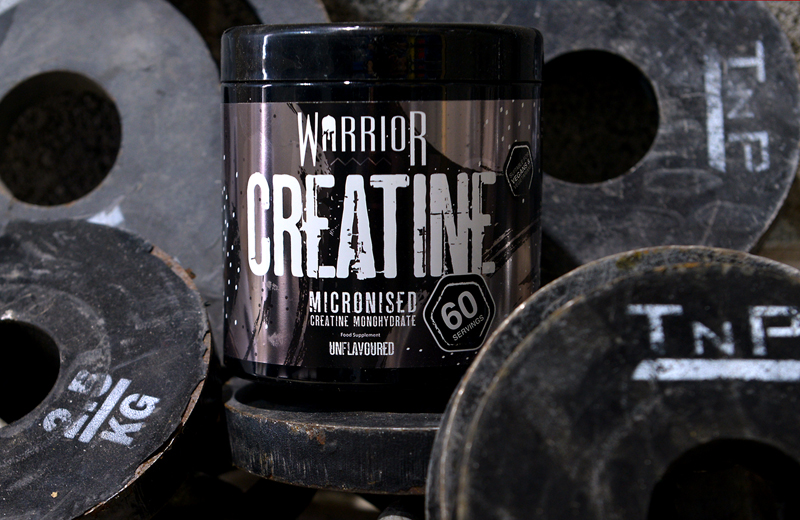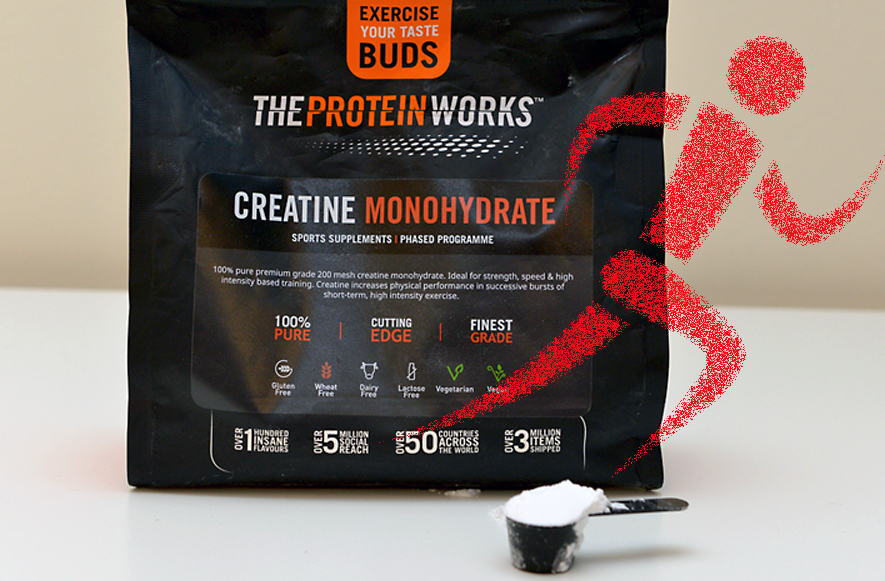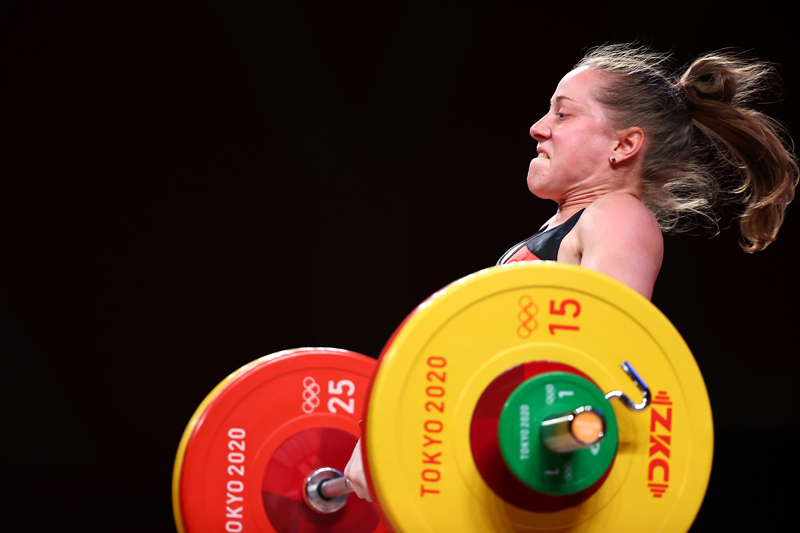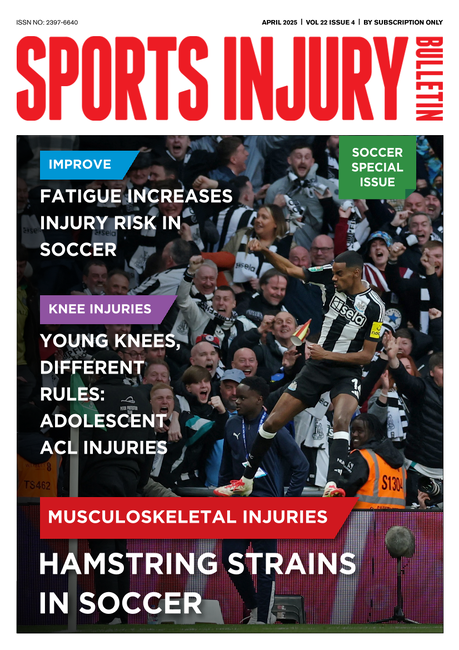You are viewing 1 of your 1 free articles. For unlimited access take a risk-free trial
Sodium bicarbonate
Research suggests it may boost performance in short events, but it can have nauseating side-effects
Bicarbonate has been researched by sports scientists for some time, producing inconsistent results, though some studies have suggested it has great potential for enhancing anaerobic performance. Perhaps the one major confounding factor is the relatively common side-effect of stomach problems. I'll come back to this later, but, first, what is the rationale behind the use of bicarb by athletes?Underlying theory
Energy production via anaerobic glycolysis, which is particularly important for events lasting between 30 seconds and 15 minutes, increases the acidity inside the muscle cells, and very soon after does the same to the blood. It is this increase in acidity within the muscle cells that is a major factor in producing fatigue in such events. If there was some way to reduce the acidity within the muscle cells, once could theoretically delay fatigue and thus continue exercising at a very high intensity for longer. Sodium bicarbonate is an alkalising agent and therefore reduces the acidity of the blood (known as a buffering action), but cannot enter the muscle cells to reduce the acidity there. However, by buffering acidity in the blood, bicarbonate may be able to draw more of the acid produced within the muscle cells out into the blood and thus reduce the level of acidity within the muscle cells themselves. This could delay the onset of fatigue.
Who might benefit?
The specific athletes who might stand to benefit from bicarb supplementation will typically compete in events that last between 1 and 7 minutes, ie, 400m-1500m running, 100m-400m swimming, most rowing competitions, and many teams sports with their repeated nature of high-intensity exercise which stresses the anaerobic glycolysis system significantly and produces a lot of acidity.
Recent research saying it works...
Bird and colleagues (Journal of Sports Sciences, 1995, vol. 13, no.5, pp 399-403) persuaded 12 middle- and long distance runners to compete in a total of six 1500m races. The three different conditions were: after bicarbonate ingestion, after placebo ingestion, and after ingestion of neither of these. The bicarbonate ingestion trial produced race times (about 4:14 mins) mainly between 3 and 5 seconds faster than the other two conditions.
Hausswirth and colleagues (European Journal of Applied Physiology and Occupational Physiology, 1995, vol. 71, no. 4, pp 362-368) found that eight subjects were able to improve local muscle endurance of the quadriceps during a sustained contraction at 35 per cent of maximal force after ingestion of sodium citrate (sodium citrate raises blood bicarbonate by a similar amount as sodium bicarb itself).
Callier and colleagues (Cinesiologie, 1994, vol. 33, pp. 45-50) had 12 male subjects perform five 1-minute bouts of cycling with 2-minute rest intervals at an intensity equivalent to 100% VO2max after placebo or citrate ingestion. The fifth bout of cycling was in fact longer than one minute and continued until exhaustion. Citrate ingestion delayed fatigue in the fifth exercise period, adding an average of 20 seconds to exercise capacity that was determined largely by anaerobic function.
...and that it doesn't
Cox and Jenkins (Journal of Sports Sciences, 1994, vol. 12, pp 469-475) used eight moderately-active male subjects to evaluate the effects of sodium citrate ingestion on repeated 60-second sprints on a cycle ergometer. Despite changes in blood bicarbonate and lactate measures which suggested that the supplementation was working correctly, performance (work done cycling) was no different between supplementation and placebo trials.
Kozak-Collins and colleagues (Medicine and Science in Sports and Exercise, 1994, vol. 26, no. 12, pp. 1510-1515) also found no significant improvement in performance, although their raw data did suggest some improvement which may have been significant if a larger sample size had been used. After ingestion of sodium bicarbonate or a placebo, seven competitive female cyclists performed intermittent exercise of one minute at 95% VO2max, the next minute at just 60 watts, until exhaustion after an average of nine bouts at each intensity. Once again, blood measures of bicarbonate and 'buffering capacity' had increased but had not been reflected sufficiently in the all-important performance measure.
Stomach irritation
One possible reason why there has been such conflicting research both recently and earlier is the fact that many subjects suffer short-term stomach complaints after ingesting sodium bicarb. These may take the form of pain, cramping, diarrhoea or a feeling of being bloated. So it's hardly surprising that individuals who feel nauseous do not go out and perform better than they normally do. Thus, some potential benefits of supplementation may be neutralised by the effects of nausea in some subjects, and when the effects are averaged in the scientific trials, ergogenic effects are hidden.
A practical approach
Before using either bicarbonate or citrate supple-ments, it's wise to check with the governing body of your sport that the substance is not contrary to doping regulations. All major organisations at present do not prohibit such use, and this is unlikely to change, but it makes sense to check.
The most important practical point is the need to experiment with the supplement during training. Typically, an 800m runner, for example, may perform a time-trial (this should really be with competition to ensure maximum effort) on a particular day after a couple of days of light training. A further couple of days later, after only more light training, he/she can repeat the time-trial in a similar environment after bicarbonate supplementation.
The exact protocol would be to ingest 0.3g of sodium bicarbonate per kg body weight approximately one-to-two hours before the time-trial. That is, for a 66 kg runner, consume 20g of sodium bicarbonate (about four teaspoons) - and, yes, the commonly-found bicarb of soda is exactly the substance needed. This experimenting, if repeated several times, should reveal whether bicarb supplementation is likely to produce any benefit and whether the athlete concerned is susceptible to stomach upsets.
It's likely that large individual differences do exist as far as response to supplementation is concerned. It has been suggested that the more highly trained athletes are less likely to benefit from it because their body's natural buffering systems are already so well developed, but so far this is just speculation. It has also been shown that sprinters build up more acidity within their muscles than endurance runners in response to the same exercise, and so may be more likely to benefit from the buffering effect. From the scientific research, it appears that the size of the dose is quite important, and that taking only 0.2g per kg is less likely to be beneficial than 0.3g per kg, although no evidence exists suggesting that an even greater dose is better still.
As for the side-effects, the athlete who suffers must try to eliminate them. Drinking up to a litre of water with the dose is often effective and should be carried out as standard. Breaking up the bicarbonate dose into, say, four equal portions taken over the course of an hour may also help. Finally, some researchers have reported that using citrate instead of bicarbonate reduces the incidence of stomach irritation, although the report referred to earlier by Cox and Jenkins unfortunately observed that nausea was experienced by seven out of the eight subjects following citrate consumption, and that five of those seven subjects vomited during exercise. Only one subject vomited during exercise after taking the placebo.
Buffering at altitude?
From the scientific evidence available, it appears that bicarb or citrate supplementation does improve buffering capacity, and thus clearly has the potential to enhance anaerobic performance. However, the responses are likely to vary between individuals, as will the susceptibility to side-effects. For a competitive athlete in an appropriate sport, experimenting at a personal level should establish whether the supplement is beneficial. As for the scientists, they need to establish whether supplementation is particularly suited to certain types of events more than others. In addition, the potential of regular bicarb supplementation to increase training load as well as one-off performance capability deserves some research attention, as does its potential for athletes who train or compete at altitude, where natural buffering capacity is reduced.
Alun Williams
Related Files
Newsletter Sign Up
Testimonials
Dr. Alexandra Fandetti-Robin, Back & Body Chiropractic
Elspeth Cowell MSCh DpodM SRCh HCPC reg
William Hunter, Nuffield Health
Newsletter Sign Up
Coaches Testimonials
Dr. Alexandra Fandetti-Robin, Back & Body Chiropractic
Elspeth Cowell MSCh DpodM SRCh HCPC reg
William Hunter, Nuffield Health
Keep up with latest sports science research and apply it to maximize performance
Today you have the chance to join a group of athletes, and sports coaches/trainers who all have something special in common...
They use the latest research to improve performance for themselves and their clients - both athletes and sports teams - with help from global specialists in the fields of sports science, sports medicine and sports psychology.
They do this by reading Sports Performance Bulletin, an easy-to-digest but serious-minded journal dedicated to high performance sports. SPB offers a wealth of information and insight into the latest research, in an easily-accessible and understood format, along with a wealth of practical recommendations.
*includes 3 coaching manuals
Get Inspired
All the latest techniques and approaches
Sports Performance Bulletin helps dedicated endurance athletes improve their performance. Sense-checking the latest sports science research, and sourcing evidence and case studies to support findings, Sports Performance Bulletin turns proven insights into easily digestible practical advice. Supporting athletes, coaches and professionals who wish to ensure their guidance and programmes are kept right up to date and based on credible science.









